Wat is het BESS -batterijopslag energiesysteem?
Terwijl je je verdiept in de wereld van zonne -kracht en energieveerkracht, Je zult constant de term 'Bess' tegenkomen." Wat betekent het eigenlijk in de context van batterijopslag? Is het gewoon een technische term voor een batterij, of is het een uitgebreider concept? Inzicht in BESS is van fundamenteel belang voor het kiezen van een moderne en intelligente energieoplossing voor uw huis of bedrijf.
In de energie -industrie, Bess staat voor het opslagsysteem voor batterijenergie. Het belangrijkste woord in dat acroniem is "Systeem." Een bess is niet alleen de batterijmodules zelf; Het is een compleet, geïntegreerde oplossing die de batterijen omvat, Een essentieel batterijbeheersysteem (GBS), een stroomconversiesysteem (Pc's), wat een slimme omvormer is, Plus de besturingssoftware en veiligheidscomponenten die nodig zijn om alles veilig en efficiënt samen te laten werken.
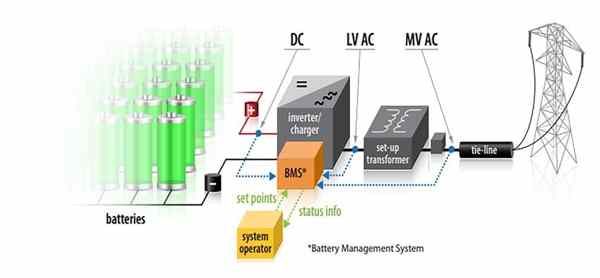
Bij Gycx Solar, We verkopen niet alleen batterijen; We ontwerpen en installeren complete BESS -oplossingen. Deze systematische benadering zorgt ervoor dat elk deel van uw energieopslag is geoptimaliseerd voor prestaties, veiligheid, en een lange levensduur. Laten we enkele van de meest voorkomende vragen over de Bess Battery Energy Storage System.
Hoeveel kost een opslagsysteem van een BESS -batterijen energie -opslag?
Bij het overwegen van een Bess voor uw eigendom, De initiële investering is een primaire overweging. Wat zijn de typische kosten, en welke factoren het uiteindelijke prijskaartje bepalen voor een van deze geavanceerde systemen?
De kosten van een residentiële Bess in Singapore kunnen aanzienlijk variëren, meestal variërend van ongeveer S $ 15.000 voor een instapsysteem tot S $ 50.000 of meer voor een grotere, Setup met een hogere capaciteit. De belangrijkste stuurprogramma's van deze kosten zijn het totaal van de batterij Energiecapaciteit (gemeten in kWh), zijn vermogensuitgangsbeoordeling (in KW), de kwaliteit en het merk van de componenten (Vooral de LFP -batterijen en hybride omvormer), en de complexiteit van de professionele installatie.
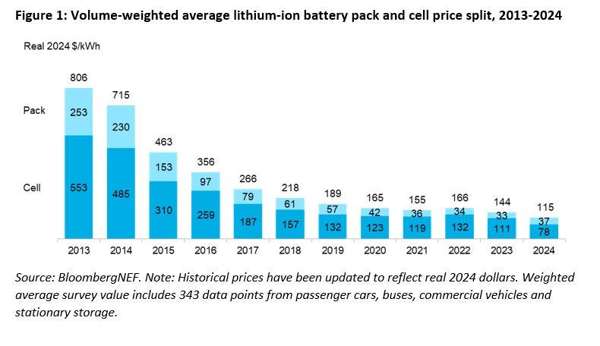
Duik dieper: Inzicht in de totale kosten van een Bess
Laten we de componenten afbreken die de totale prijs vormen:
- Batterijmodules: Dit is vaak het grootste deel van de kosten en wordt aangedreven door het totale kilowattuur (kWh) Capaciteit die u nodig heeft.
- Power Conversion System (Pc's): Dit is de hybride omvormer die de energiestroom tussen uw zonnepanelen beheert, accu, thuis, en het rooster. Krachtigere omvormers kosten meer.
- Batterijbeheersysteem (GBS): Deze cruciale veiligheid en prestaties zijn meestal geïntegreerd in de batterijmodules. De verfijning draagt bij aan de waarde.
- Balans van het systeem (Bos): Dit omvat de fysieke behuizing (Als een strakke muur gemonteerde eenheid of een professionele rekkast), bedrading, Veiligheid verbroken, en andere essentiële hardware.
- Professionele installatie: Voor veiligheid en naleving in Singapore, Installatie moet worden afgehandeld door gekwalificeerde technici en een erkende elektrische medewerker (Lew). Deze arbeid en expertise is een belangrijk onderdeel van de kosten.
- Langdurige waarde: Terwijl de kosten vooraf aanzienlijk zijn, Het is belangrijk om het als een langetermijninvestering te zien. In een dure elektriciteitsmarkt zoals Singapore, Een BESS gecombineerd met zonne -energie kan leiden tot substantiële wetsvoorwaarden gedurende vele jaren, het aanbieden van een aantrekkelijk rendement op investeringen en onschatbare energiezekerheid.
Wat is de levensverwachting van een opslagsysteem voor batterijenergie?
Een BESS is een langdurig actief, Dus een kritische vraag is: hoe lang zal het eigenlijk duren? U wilt er zeker van zijn dat uw investering nog vele jaren betrouwbare service biedt.
De batterijcomponent in een moderne bess, die meestal is gebouwd met LFP (Lithium-ijzerfosfaat) scheikunde, is ontworpen voor uithoudingsvermogen. U kunt over het algemeen een kalenderleven van 10 naar 20 jaren en een fietsleven van 3,000 naar over 6,000 Cycli van volledige ladingontlading. Om vertrouwen te geven in deze levensduur, De meeste gerenommeerde BESS -fabrikanten bieden een uitgebreide 10-Jaargarantie.
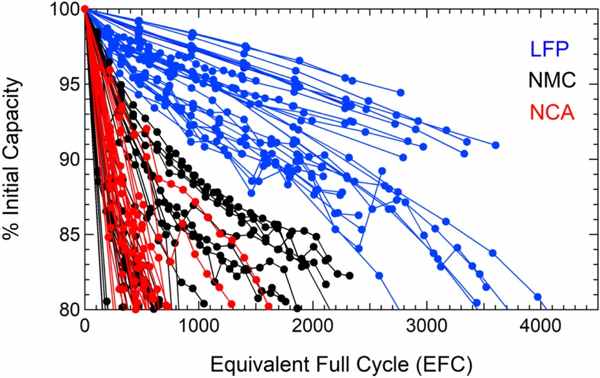
Duik dieper: De wetenschap van de levensduur van Bess
Het lange leven van een moderne Bess is geen toeval; Het is het resultaat van superieure technologie en systeemontwerp:
- LFP -chemie: Lithium -ijzerfosfaat is ongelooflijk stabiel en robuust. Het kan de stress van dagelijks opladen omgaan en vele jaren uit een zonnepaneelsysteem ontladen zonder significante degradatie. Een batterij die eenmaal per dag voor fietst 15 Jaren zullen ondergaan 5,475 cycli, een nummer dat een hoogwaardige LFP -bess is gebouwd om te overtreffen.
- Intelligent BMS: Het batterijbeheersysteem fungeert als een voogd, De batterijcellen voortdurend beschermen tegen stress. Het voorkomt overladen, overdaad, en zorgt ervoor dat alle cellen in evenwicht zijn, wat van vitaal belang is voor een lang en gezond operationeel leven.
- Thermisch beheer: De Bess -behuizing is ontworpen om de batterijen koel te houden. Dit is vooral van cruciaal belang in het hete en vochtige klimaat van Singapore, Omdat overmatige hitte een primaire vijand van de levensduur van de batterij is. Juiste ventilatie of zelfs actieve koeling is essentieel.
- Garantie als garantie: Een garantie van 10 jaar van een gerenommeerde fabrikant is uw zekerheid van prestaties. Het garandeert meestal dat de batterij een bepaald percentage van zijn oorspronkelijke capaciteit behoudt (Bijv., 70%) Na een decennium van dienst, ervoor zorgen dat u de waarde krijgt waarvoor u hebt betaald.
GYCX Solar Story: "We leggen onze klanten altijd uit dat investeren in een kwaliteit LFP1 Bess is een investering in een decennium of meer energie -gemoedsrust. De technologie is vanaf het begin ontworpen voor dit soort langdurige, Dagelijks gebruik."
Hoe lang kan Bess energie vasthouden?
Wat gebeurt er als u uw Bess volledig op laadt van uw zonnepanelen op een zonnige dag, Maar gebruik de energie dan een week of zelfs een maand niet? Zal de energie er nog zijn als je hem nodig hebt?
Een moderne lithiumbess kan zijn opgeslagen energie voor een zeer lange tijd vasthouden met minimaal verlies. Dit is te danken aan de zeer lage "Zelfontlading" Snelheid van zijn LFP -batterijcellen, dat is meestal alleen 1-3% per maand. Dit betekent dat als u uw Bess volledig oplaadt en deze inactief laat, het zal nog steeds zijn 95% van zijn heffing een maand later.
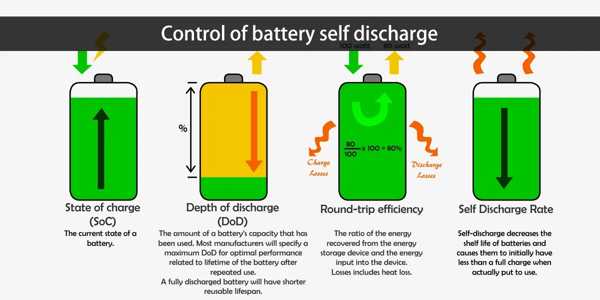
Duik dieper: De stabiliteit van opgeslagen energie
Laten we eens kijken waarom een Bess zo goed is in het vasthouden van een lading:
- Zelfontlading legde uit: Dit is een natuurlijke, Langzaam laadverlies veroorzaakt door interne chemische reacties binnen elke batterij. De snelheid van dit proces hangt af van de chemie van de batterij.
- Lithium's voordeel: LFP lithium-ion chemie is zeer stabiel, resulterend in de extreem lage zelfontladingspercentage van 1-3% per maand. Dit is een enorme verbetering ten opzichte van oudere technologieën zoals verzegelde loodzuurbatterijen, die kunnen verliezen 5-15% of meer van hun kosten in één maand.
- De impact van temperatuur: Warmte kan de snelheid van zelfontlading enigszins verhogen. Het opslaan van een batterij op een coole plaats helpt het nog langer te behouden.
- Standby -kracht: Het is belangrijk om zelfontlading te onderscheiden van het standby-stroomverbruik van de BESS zelf. Als de Bess is ingeschakeld en "klaar," zijn interne elektronica (GBS, omvormer) zal een zeer kleine maar constante hoeveelheid kracht trekken. Echter, Als het systeem correct wordt uitgeschakeld voor langdurige opslag, Alleen de trage zelfontlading van de batterijcellen zelf zal optreden.
Voor alle praktische doeleinden, Een moderne Bess is ongelooflijk effectief bij "Bottling Sunshine" en die energie voor u klaar houden wanneer u die nodig hebt, Of dat uren zijn, dagen, of zelfs weken later.
Wat is het beste opslagsysteem voor thuisbatterijen?
Wanneer u besluit om in een Bess voor uw huis te investeren, Je zult veel uitstekende opties vinden. Hoe kies je de single "beste" een? De waarheid is, Het beste systeem is het beste dat het beste past bij jouw specifieke behoeften.
Er is geen enkele "het beste" Home Battery Storage System voor elke persoon. De optimale keuze hangt af van uw prioriteiten, zoals esthetiek, Beschikbare ruimte, Vereiste capaciteit, en toekomstige schaalbaarheid. Algemeen, strak, Alles-in-één muur gemonteerde systemen zijn fantastisch voor hun ontwerp en eenvoud, Terwijl modulair Op rack gemonteerde batterijsystemen bieden ongeëvenaarde flexibiliteit en schaalbaarheid voor grotere of meer aangepaste behoeften.
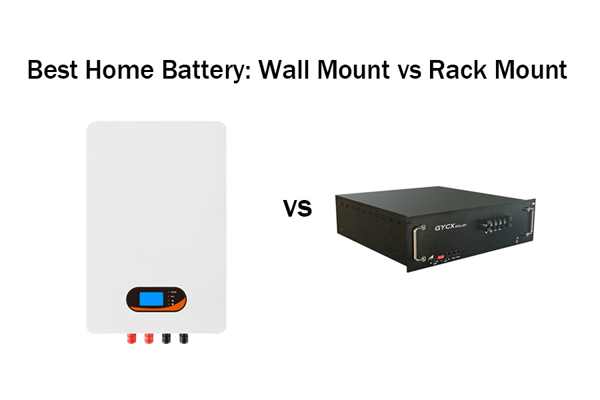
Duik dieper: Het vinden van je perfecte fit Bess
Laten we de twee leidende benaderingen vergelijken:
- Muur gemonteerde bess (Het "apparaat" Benadering):
- Het beste voor: Huiseigenaren die prioriteit geven aan een schone, moderne esthetiek en hebben energiebehoeften die aansluiten bij de standaardunit capaciteiten (Bijv., 10-14 kWh).
- Pluspunten: Ze zien er geweldig uit, komen vaak als een alles-in-één pakket van één merk, en zijn ontworpen voor een eenvoudige gebruikerservaring. Ze zijn geweldig om vloeroppervlak te redden in een compact Singaporese woning.
- Nadelen: Kan minder flexibel zijn als u een zeer specifieke capaciteit nodig hebt, en je bent misschien gebonden aan het ecosysteem van één merk voor toekomstige upgrades.
- Modulaire rack-mount bess (Het "schaalbaar" Benadering):
- Het beste voor: Huiseigenaren met een hogere energievereisten, Degenen die van plan zijn voor toekomstige groei (zoals het toevoegen van een EV), of degenen die maximale flexibiliteit willen in hun systeemontwerp.
- Pluspunten: Zeer schaalbaar - u kunt gemakkelijk meer modules toevoegen (Vaak in stappen van ~ 5 kWh) Om uw opslag in de loop van de tijd te vergroten. Kan per kWh meer kosteneffectiever zijn voor grotere systemen. Vaak compatibel met een breder scala aan omvormers van derden.
- Nadelen: Het rek of de kast heeft een meer industriële look en neemt wat vloerruimte in beslag, het het meest geschikt maken voor een bijkeuken of speciale ruimte.
GYCX Solar Story: "Ons consultatieproces gaat helemaal over het vinden van deze‘ beste pasvorm. "Voor een klant in een nieuwe BTO -flat, een enkele, slanke muur gemonteerde Bess was de perfecte oplossing. Voor een andere klant met een land en plannen voor een EV, We hebben een schaalbaar reksysteem in hun opslagruimte ontworpen dat zou kunnen groeien met de behoeften van hun gezin."
Een bess is meer dan alleen een batterij; Het is een compleet, Intelligent systeem dat u de controle over uw energie geeft. Door zijn componenten te begrijpen, kosten, en ongelooflijke levensduur, U kunt de waarde ervan zien als een investering op lange termijn. Of een slanke wandmontage-eenheid of een schaalbaar reksysteem "het beste is" voor jou, Het resultaat is hetzelfde: grotere veerkracht en besparingen van energie.
Als je klaar bent om te onderzoeken hoe een Bess Battery Energy Storage System kan worden aangepast aan uw huis of bedrijf, Het expertteam van GYCX Solar is er om te helpen. Neem vandaag nog contact met ons op voor een professioneel consult!
Inzicht in het concept van LFP zal u helpen om batterijgerelateerde gegevensconcepten beter te vergelijken en te begrijpen. Dit helpt u het product te selecteren dat het beste bij uw behoeften past bij ons bedrijf. ↩
